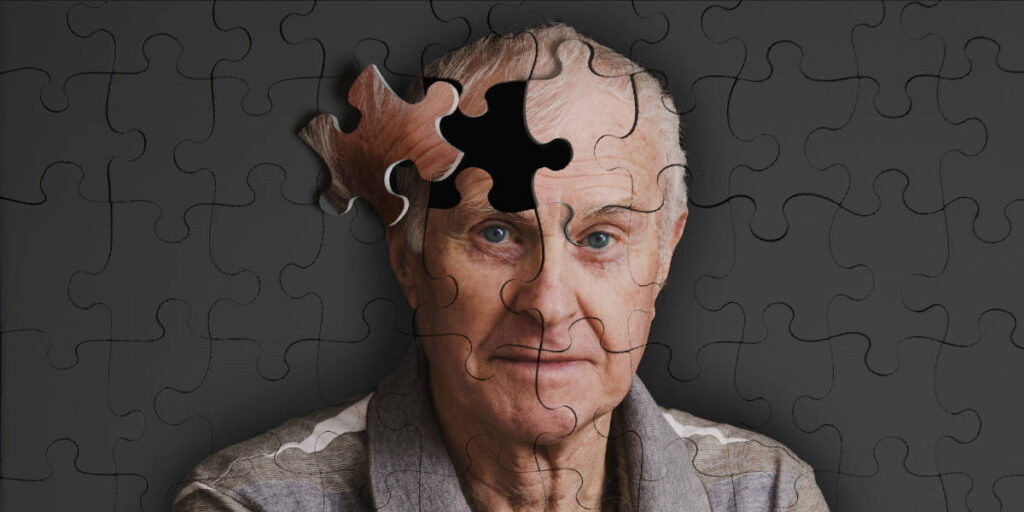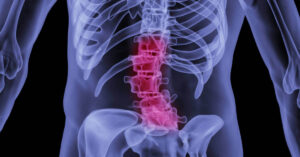Overview
Dementia is a degenerative process characterized by loss of cognitive function eg loss of memory, thinking, reasoning, and loss of executive function which the person was able to do before the start of this process.
It usually affects people older than 60 years of age. It is a process of accelerated aging of the brain. Alzheimer’s Disease is the most common type of dementia.
Dementia can be of the following types:
Alzheimer’s Disease :
Alzheimer’s is the most common cause of dementia caused by specific changes in the brain. The characteristic feature is trouble recalling recent events particularly within an hour. For instance, a conversation that happened moments ago about not recognizing one’s own identity. People may face issues such as difficulty walking, speaking, changes in personality in later part of disease. Patients have about a 20% chance of inheriting the disease.
Vascular Dementia :
Vascular dementia is a condition in which, dementia worsens with every episode of stroke. These strokes may be mild and the patient may not even realize they are having it. The symptoms depend upon the area of the brain that is affected or has shown structural changes.
Lewy Body Dementia :
People suffering from Lewy body dementia, in addition to basic symptoms such as memory loss, deal with the loss of balance and movement. They experience stiffness and trembling along with changes in vigilance – staring at the walls, daytime sleepiness, or confusion. They may experience visual hallucinations.
Fronto-Temporal Dementia :
When the front-temporal bone is affected, frontotemporal dementia sets in. This kind of dementia often results in changes in personality and behaviour. Patients often speak without thinking and tend to embarrass themselves. They may face issues with speaking and understanding.
Mixed Dementia :
People older than 80 may get affected by multiple types of dementia at a given time. For instance, they may have Alzheimer’s and frontotemporal dementia at the same time. In mixed dementia, symptoms of different types of dementia overlap with the faster progression of the disease.
Dementia presents differently in each individual. However, certain common symptoms have been identified which can be divided into stages of occurrence.
Early Stage:
The onset of dementia is gradual, which makes early symptoms less predominant. A few symptoms to enlist are as follows:
1. Loss of memory or forgetting simple day-to-day tasks
2. Losing sense of place
3. Lost sense of time
Intermediate Stage:
As the disease progresses, the symptoms become predominant and may include:
1. Becoming absent-minded of fresh occasions and family’s names
2. Ending up being confounded while at home
3. Having expanding trouble with communication
4. Requiring assistance with personal care
5. Encountering behaviour changes, including drifting off and repeated questioning
Late-Stage:
The late stage of dementia is when the person becomes totally dependent on caregivers. Forgetfulness becomes a serious threat and certain physical signs and symptoms become more evident.
These include:
1. Lost sense of time and place
2. Difficulty in recognizing own family members
3. Need of a caregiver
4. Difficulty walking
5. Aggressive behavior
Other Signs and Symptoms Include:
1. Use of unusual words to refer to familiar objects
2. Daily tasks take longer to complete
3. Losing interest in day-to-day events/ tasks
4. Experiencing hallucinations and delusions
5. Impulsive behaviour
6. Indifferent to others’ feelings
7. Loss of balance and muscle coordination
The causes of dementia can vary depending on the types of changes seen in the brain.
Research suggests, some forms of dementia occur due to changes in certain parts of the brain, whose underlying causes are still hidden.
Certain factors responsible for causing dementia are as follows:
- Rare genetic mutations
- Tumours
- Heredity
- Damaged cells in different parts of the brain
- Depression
- Excessive smoking and alcoholism
- Side effects of medication
- Vitamin deficiencies
Doctors usually look for an underlying, potentially treatable condition that may relate to psychogenic difficulties.
Regular physical exams and blood tests to diagnose existing medical conditions may be carried out.
An appropriate medical history can give cues about the familial disposition of dementia.
The following procedures assist in the diagnosis of dementia:
Cognitive and Neurological Testing:
Thinking and physical functioning in terms of memory, language skills, math, and problem-solving skills, balance and muscular coordination, reasoning, reflexes, and sensory response may be assessed by these tests.
Brain Scanning:
These tests identify the presence of embolus giving rise to strokes, and tumours that can cause dementia. Scans also help assess any changes in the brain’s structure and function.
Following scans may be advised:
* Computed tomography (CT)
* Magnetic resonance imaging (MRI)
* Positron emission tomography (PET)
Psychiatric Evaluation:
The psychiatric evaluation enables the clinician to determine if the patient is suffering from depression or any other mental health condition that may be responsible for causing dementia.
Genetic Testing:
Genes play a major role in causing dementia. Genetic testing can help determine the presence of its gene and helps caution people about the risk of developing dementia.
Blood Tests:
Measuring levels of beta-amyloid in blood, a protein that accumulates abnormally in people with Alzheimer’s, it is feasible to diagnose dementia.
Treatment of dementia depends on the cause.
Alzheimer’s, which is neurodegenerative dementia has no cure. However, symptoms can be managed with medications to some extent. There is still research going on to develop more effective and efficient dementia treatment options.
The first therapy suggested removal of amyloid from the brain may reasonably reduce cognitive and functional disparities in people suffering from Alzheimer’s. Non-drug therapies may also help alleviate symptoms of the disease.
The following factors increase the risk of dementia:
1. Family history: Those families in which elders have suffered dementia are likely to pass it on to the next generation.
2. Age: People of age above 65, are at a higher risk of developing dementia.
3. Poor medical condition: Having pre-existing medical conditions such as hypertension, high cholesterol increase the risk of dementia if not cared for.
4. Traumatic brain injury: People with head injuries are likely at a higher risk of developing dementia, especially if they are severe or occur repeatedly.
5. Smoking and alcohol consumption



